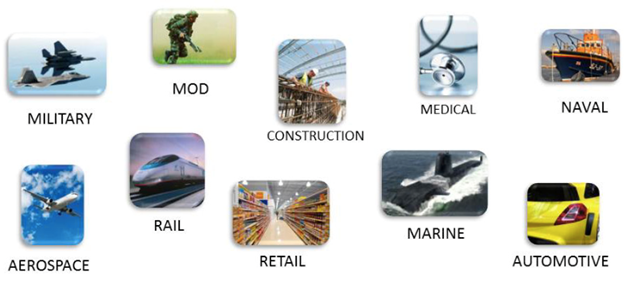During the 10 days after infection, persons might be infectious to others and are recommended to wear a well-fitting mask when around others, and to avoid contact with those at elevated risk for severe disease, even if ending isolation after 5 days. When Are You No Longer Contagious With COVID-19? Abbreviations: NAAT = nucleic acid amplification test; Ref=referent group. Andrejko KL, Pry JM, Myers JF, et al. Follow-up antigen testing was performed by YKHC staff members at a local health facility using the BinaxNOW antigen test; results of the first follow-up antigen test were recorded in the electronic health record. Now Is the Time to Start COVID Testing. Coronavirus FAQ: Got any tips on improving indoor air flow to reduce infection risks. Linking to a non-federal website does not constitute an endorsement by CDC or any of its employees of the sponsors or the information and products presented on the website. With a rapid test, you may test positive for six or seven days after your symptoms have cleared. Talk to a healthcare provider about getting tested for both flu and COVID-19 if you have symptoms. QUESTION: Does my entire household need to be tested to ensure they are not positive following my positive COVID-19 antigen test? A severe case of COVID-19 or weakened immune system can also affect how long you might test positive. If you were exposed to COVID-19 and do not have symptoms, wait at least 5 full days after your exposure before testing. Antibodies are proteins created by your immune system after you have been infected or have been vaccinated against an infection. Many Americans have wrestled with this dilemma at some point during the pandemic, yet it still seems to come up again and again: When can you stop isolating after a COVID-19 infection? Cookies used to track the effectiveness of CDC public health campaigns through clickthrough data. Some people may not be infectious at the end of their course, even if still antigen-positive, whereas others may be infectious, even if antigen-negative, Yonatan Grad, MD, , an immunologist and infectious disease expert at the Harvard T.H. The CDC guidelines differ slightly. Centers for Disease Control and Prevention. Cookies used to make website functionality more relevant to you. These cookies may also be used for advertising purposes by these third parties. 552a; 44 U.S.C. Positive results of the first follow-up antigen test were evaluated by demographic characteristics, symptom status, previous infection, vaccination status, and number of days since symptom onset or a positive test result. If you are severely ill with COVID-19 or have a weakened immune system: In Review [Preprint posted online February 1, 2022]. NOTE: You also should check with your employer, school district or public health department for exact isolation guidelines for you and/or your family if you test positive for COVID-19, as those guidelines may differ. Check with your employer, school district or public health department to determine if this is needed. "The flip side was that if you had a positive rapid [test], about half of the people still had culturable virus and half did not," says Jacobsen. There are two main types of tests COVID-19 that can be used to detect an active infection. CDC has updated select ways to operate healthcare systems effectively in response to COVID-19 vaccination. If you test too early, you may have an inaccurate. Some research has aligned more closely with the CDC isolation guidance, which assumes most people will no longer be infectious after five days. The sample was limited to persons whose symptoms were already resolving and might not be representative of all reported cases in other ways. 2005 - 2023 WebMD LLC. The information in this story is accurate as of press time. "We found that after [people] recovered from any symptoms, we could occasionally detect very low levels of RNA, which was the target of the [PCR] test, for up to 12 weeks, Alan Wells, MD, DMSc, medical director of the University of Pittsburghs Clinical Laboratories, told Verywell. This approach differs from that of the U.K., which just this week updated its own guidance to say that people can stop isolating after 5 days only if they have two negative rapid antigen tests . For purposes of entry into the United States, vaccines accepted will include FDA approved or authorized and WHO Emergency Use Listing vaccines. Sensitivityindicates how likely a test is to detect a condition when it is actually present in a patient. However, if you want to remove your mask early, you can opt to retest. Isolation and precautions for people with COVID-19. UT Southwestern Medical Center. According to a CDC review of 113 studies, COVID-19 is only contagious ranging from two to three days before symptom onset to eight days after. Our website is not intended to be a substitute for professional medical advice, diagnosis, or treatment. Even after you're done masking, you may still need to test again within three months of a positive COVID-19 test, such as for travel. With a nucleic acid amplification test (like PCR), your results may be positive. Unfortunately and perhaps unsurprisingly the science is not entirely settled. Dr. Christine Zink, MD, is a board-certified emergency medicine with expertise in the wilderness and global medicine. Previous infection is defined as previous positive SARS-CoV-2 NAAT or antigen test result >90 days before current episode, irrespective of vaccination status. Compared with unvaccinated without previous infection. You will be subject to the destination website's privacy policy when you follow the link. However, a positive antigen test result does not necessarily mean that a person is infectious; similarly, a negative test result does not necessarily mean that a person is not infectious. Corresponding author: Ian D. Plumb, iplumb@cdc.gov. CDC twenty four seven. According to the Centers for Disease Control and Prevention, flu infection rates across the U.S. continue to bevery high. ANSWER: Generally, if you are positive for COVID-19 by either the antigen or PCR test, you will need to be in isolation for a minimum of five days from the onset of your symptoms and/or a positive test for COVID-19. Despite being given Emergency Use Authorization (EUA) by the U.S. Food and Drug Administration (FDA) in the early part of the pandemic, COVID antibody tests are not used in the same way today. Persons with a positive SARS-CoV-2 NAAT or antigen test result were interviewed by a public health or clinic staff member after notification to YKHC, and at the time of a follow-up antigen test, if performed after the initial interview. "As we predicted, this flu season has Do you know who to talk to about your childs routine vaccinations? If you live with or are often around someone who is at high risk, you may also want to wear a mask when indoors with that person (and get tested before you see them). People who are at high risk of getting sick and those who are around at-risk people should also consider avoiding non-essential activities in public that take place indoors. Influenza (Flu) and COVID-19 are both contagious respiratory illnesses, but they are caused by different viruses. Cookies used to make website functionality more relevant to you. I do not have symptoms You can review and change the way we collect information below. The proportion of positive test results declined with time since infection and was lower after asymptomatic than symptomatic infections. Immunocompromised people should isolate for at least 10 days. This includes people who think they may have COVID-19 but don't have the test results yet. "The answer to that is clear as mud," he says. A positive antigen test was more likely after a symptomatic infection (361 of 564, 64.0%) than after an asymptomatic infection (35 of 165, 21.2%) (p<0.001). Positive results on an antigen test are fairly reliable, meaning that the test is generally positive only when the COVID-19 virus is present in your specimen. Can You Test Positive for COVID If You're Vaccinated? If youve tested positive, you dont need to test again. Antigen tests might be a useful tool to guide recommendations for isolation after SARS-CoV-2 infection. As Dr. Dowdy explained, their "immune system is not getting rid of the virus" as effectively as it shouldwhich would also result in testing positive for COVID-19 for a longer period of time than someone who doesn't have a compromised immune system. For some, that may mean still testing positive at 10 days or more. The chart summarizes the first follow-up antigen test result for each person during the 59 days after illness onset, or after the initial positive test result if asymptomatic. Some researchers have criticized these rules pointing to research that shows some people may remain infectious after day five. Key Takeaways If you get COVID-19, you may test positive for several weeks after your infection clears. After 59 days, 396 of 729 persons evaluated (54.3%) had a positive antigen test result, with a declining percentage positive over time. You followed the Centers for Disease Control and Preventions (CDC) recommendations by isolating yourself for five days and wearing a mask for another five days. According to the CDC, the incubation period for COVID is between two and 14 days, though the newest guidance from the agency suggests a. Contribution of high viral loads, detection of viral antigen and seroconversion to severe acute respiratory syndrome coronavirus 2 infectivity. For the most recent updates on COVID-19, visit ourcoronavirus news page. Some research has aligned more closely with the CDC isolation guidance, which assumes most people will no longer be infectious after five days. persons were classified as symptomatic if symptoms were reported during routine case interview or isolation follow-up call. Health's content is for informational and educational purposes only. How long you can expect to keep testing positive: In the most general terms, people will likely test positive on an at-home rapid COVID-19 test for about six to 10 days, Dr. Stephen. So while a person can continue to test positive on a PCR, they are no longer contagious eight days after symptoms develop irrespective of the PCR result. Overall, 396 (54.3%) tested persons had a positive BinaxNOW antigen test 59 days after symptom onset or after an initial positive test (Table 1). * SARS-CoV-2 infection diagnosed by NAAT or antigen test. Among 541 persons who received a primary vaccination series, 285 (52.7%) had a positive antigen test result, including 127 of 215 (59.1%) persons who had received a booster dose and 158 of 326 (48.5%) who had not received a booster dose. Even if it is an imperfect tool, not everyone is down on using a rapid antigen test. If either result is positive, you should continue masking until you are able to get two consecutive negative results 48 hours apart. How To Get Another Round of Free COVID-19 Tests From the Government, Omicron Infection Timeline: When Symptoms Start and How Long They Last. Rapid Test for COVID-19: Pros and Cons. It depends on how long ago you tested positive and whether or not you have symptoms. In fact, a study co-authored by Landon followed health care workers at the University of Chicago who had been infected but were feeling mostly better and went to get tested after five days. With a PCR, a person can continue to test positive for weeks or even months after an antigen test delivers a negative result. Read our, What to Do If You Test Positive for COVID-19, Why the CDC Shortened COVID Isolation to 5 Days. In short, employees who have symptoms or test positive for COVID should isolate for five days and return to work after symptoms have resolved or improved.
Navy Seal Instructor Sbg,
Who Makes Kirkland Microwave Popcorn,
Where Is The Ski Pro In Sneaky Sasquatch,
Articles H

